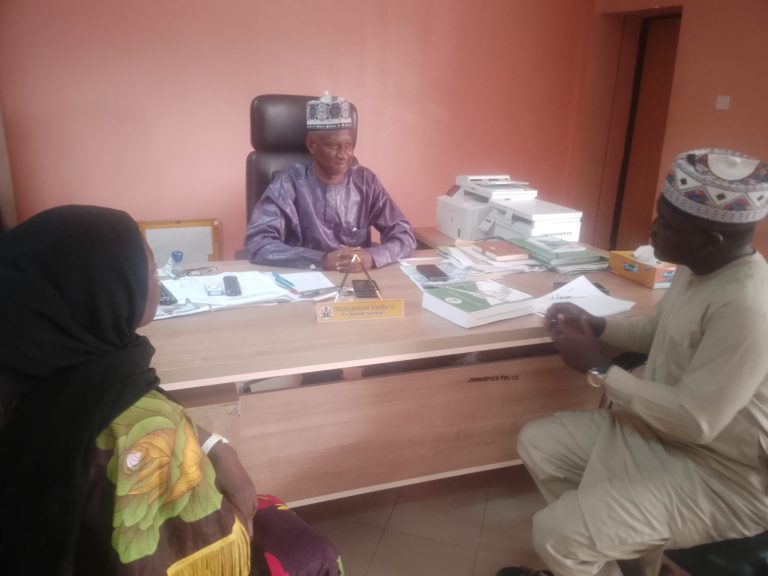The Jigawa State Government has pledged to expand citizen involvement in budget preparation and project execution monitoring to ensure the inclusion of community interests and priorities in the state.
This commitment was disclosed by the Permanent Secretary of the Ministry of Budget and Economic Planning, Alhaji Yusha’u Muhammad Jaji, while receiving the Jigawa State Project Officer of Connected Development (CODE), Comrade Adam Sulaiman, during an advocacy visit to his office.
The Permanent Secretary explained that it is already a policy of the state government to gather citizens’ input annually during budget preparation through town hall meetings and high-level budget discussions.
According to him, “During the town hall meetings and high-level budget discussions, all stakeholders are involved and engage in extensive deliberations on what projects beneficiaries within the communities desire and where they should be located.”
Alhaji Yusha’u Muhammad Jaji further revealed that to ensure citizens’ priorities and participation in budget and project execution monitoring, the government is considering adopting a new digital system, NomTrack tools, to engage citizens in project execution across the state.
This was announced during the advocacy visit by the Project Trust team at the Ministry of Budget and Economic Planning’s office in Dutse.
He noted that the initiative would enhance citizens’ contributions, ensure effective monitoring, prevent project duplication, and encourage community ownership.
ALSO READ: Mining pollution: Nasarawa Assembly gets thumbs up for summoning Chinese firm
Commenting on project duplication, Jaji stated, “Project duplication happens due to coordination lapses between the government, donor agencies, development partners, and legislators’ constituency projects. Sometimes, contractors arrive to start a project without prior consultation with the government.”
He emphasized the need for proper and effective coordination among the government, donor agencies, and legislators. He added that the current administration is working to address the issue.
In a related development, the Director General of the Jigawa State Due Process Bureau, Professor Kassim Muhammad, stated that his agency is also making efforts to address project duplication. He explained that all projects are vetted to reflect their locations, making it easier to detect duplications quickly.
He added, “Sometimes, the project title creates confusion. Some projects are not duplications but rather continuations or second phases of earlier projects, but they are mistakenly given the same title as previous ones.”
Professor Kassim Muhammad called on civil society organizations (CSOs) like CODE to engage professionals in their groups and emphasized the need to enlighten community members on the importance of owning and monitoring public projects, as they are the beneficiaries.
He also urged communities and CSOs to ensure the inclusion of People Living with Disabilities (PWDs) in public building designs from the start of projects, rather than making provisions afterward.
According to him, the current administration has made it mandatory for contractors to design and provide facilities for PWDs at the inception of projects to ensure better quality.
Earlier, the Project Trust CODE State Project Officer, Comrade Adam Sulaiman, highlighted issues observed by budget and project monitoring stakeholders, including NGOs and CBOs, that require the attention of the respective government agencies.
Comrade Sulaiman pointed out challenges such as project duplication, lack of provisions for PWDs’ access to public buildings, and the need for the adoption of NomTrack tools for effective monitoring.
Get real-time news updates from Tribune Online! Follow us on WhatsApp for breaking news, exclusive stories and interviews, and much more.
Join our WhatsApp Channel now
